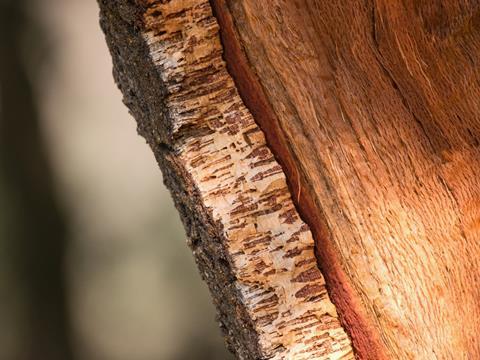
In its never-ending search for alternative packaging materials, our industry is looking far and wide. In recent times, we’ve reported on an array of different materials being used in packs – from crustacean shells to banana skins. Many of these newer solutions do seem to be viable, but in our quest to develop novel packaging materials, are we wrongly overlooking some of the oldest ones?
Cork has been used to seal bottles, jars and amphorae since at least the Ancient Egyptian and Ancient Greek eras. But, in modern times, it is increasingly being used to form the main part of the pack. One brand leading the way in this field is cosmetics retailer Lush.
The company’s experimentation with cork began when its head of ethical buying, Simon Constantine, asked his team to come up with a plastic alternative that could maintain its structural integrity. Nick Gumery, creative buyer at Lush, came up with cork.
But why?
For a start, Lush says that cork is flexible, strong, easy to work with, anti-bacterial, fire-retardant, and water-resistant. It can also be composted at the end of its life.
Unlike other fibre-based materials, the process of harvesting cork doesn’t rely on an entire tree being felled. Cork is made from a layer of material under the bark of the cork tree, and is harvested from each tree every nine or ten years. In the intervening years between harvests, the tree replenishes its cork layer.
Cork trees also happen to be very effective sequesters of carbon. Lush’s cork pots have been certified by the Carbon Trust as carbon neutral – each one apparently sequesters over 33 times its weight in CO2.
Portugal produces over 60% of the world’s cork, and it’s from here that Lush sources the material for its packaging. The company works with Eco-interventions, an environmental group that helps local Portuguese farmers to keep cork forests healthy and viable.
Eco-interventions uses the money it makes from the pots to regenerate the cork forests, which have previously been damaged by forest fires, overharvesting, and artificial fertilisers and pesticides over the years.
An independent offshoot of the group called Cork Connections created a machine to produce a prototype shampoo bar case made from cork. Lush then refined the production process to make it more efficient, before sending the machinery to a local factory in Portugal, where the packs are manufactured on a commercial scale.
And, in a true throwback to cork’s golden age as a packaging material, the final part of the cork pot’s journey from Portugal to the UK is made by sailboat.
If you liked this story, you might also enjoy:
The ultimate guide to the Packaging and Packaging Waste Regulation in 2024
How are the top brands progressing on packaging sustainability?
Sustainable Innovation Report 2024: Current trends and future priorities
Everything you need to know about global plastic sustainability regulation














No comments yet